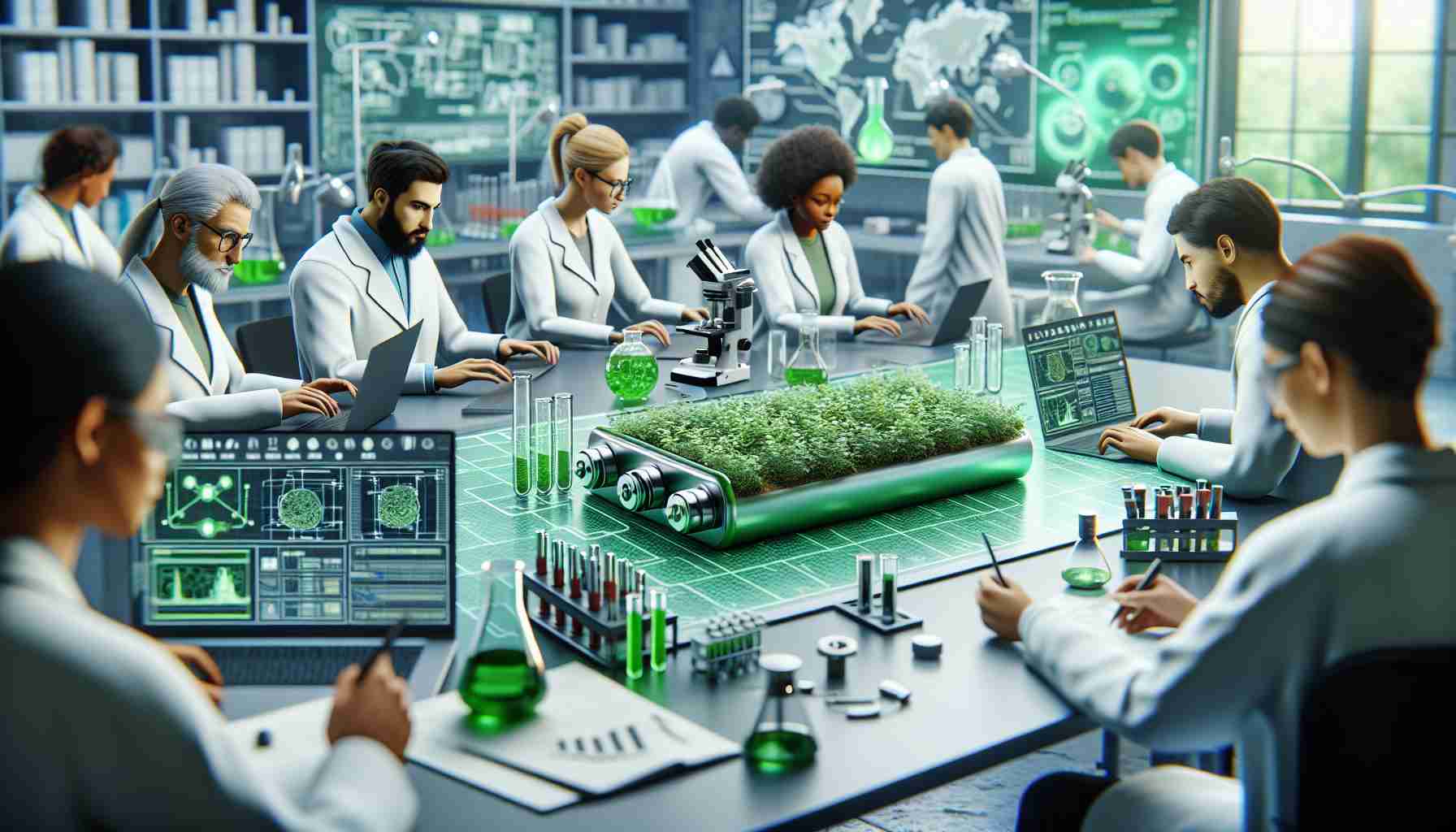TU Delft researchers have made significant strides in the development of batteries that offer faster charging, stable storage, and are made from sustainable materials. The research, recently published in Nature Sustainability, focuses on the creation of a new positive electrode that provides a potential cheaper alternative to lithium-ion batteries. This breakthrough not only addresses the high CO2 footprint associated with lithium-ion batteries but also reduces reliance on rare materials.
In a previous paper published in Nature Energy, researchers Marnix Wagemaker and Alexandros Vasileiadis collaborated with researchers from the Chinese Academy of Sciences to create fast-charging Na-ion batteries. The recent research expands on this work by improving the negative electrode and emphasizes the use of organic materials that are widely available, reducing dependency on rare materials that are not sourced from Europe.
The Delft researchers have also made significant advancements in cathode design. Their latest article, titled “Fast-charge high-voltage layered cathodes for sodium-ion batteries,” builds upon design principles presented in a 2020 paper published in Science. Through these design principles, they have developed a material that combines high energy density with fast charging capabilities. Furthermore, this material demonstrates remarkable structural stability during charging and discharging, resulting in a longer lifespan. Notably, it also eliminates the need for cobalt, a commonly used component in lithium-ion cathodes.
With increasing knowledge and understanding of these battery materials, the researchers are now moving towards the next phase of their sustainable battery technology project. This project, supported by the Growth Fund, aims to expand the research on both Li-ion batteries and Na-ion batteries. The ultimate goal is to apply this technology to national and European markets, paving the way for more sustainable energy storage solutions.
Through their innovative approach and focus on sustainable materials, TU Delft researchers are driving the development of batteries that offer a promising alternative to lithium-ion. By addressing the limitations of current battery technology, these advancements have the potential to revolutionize the energy storage industry and contribute to a greener future.
Frequently Asked Questions (FAQs) about TU Delft’s Battery Research:
1. What are the main achievements of TU Delft researchers in battery development?
TU Delft researchers have made significant strides in the development of batteries that offer faster charging, stable storage, and are made from sustainable materials. They have specifically focused on creating a new positive electrode that provides a potential cheaper alternative to lithium-ion batteries, addressing the high CO2 footprint associated with lithium-ion batteries and reducing reliance on rare materials.
2. How have the researchers addressed the high CO2 footprint associated with lithium-ion batteries?
The researchers have developed a new positive electrode that offers a potential cheaper alternative to lithium-ion batteries. By using sustainable materials and minimizing reliance on rare materials, they aim to reduce the environmental impact and CO2 emissions associated with battery production.
3. What is the significance of the recent research published in Nature Sustainability?
The recent research published in Nature Sustainability expands on previous work by improving the negative electrode and emphasizing the use of organic materials that are widely available. This not only reduces the dependency on rare materials but also contributes to the development of batteries with faster charging capabilities and stable storage.
4. How have the Delft researchers advanced the design of cathodes?
The Delft researchers have made significant advancements in cathode design. Their latest article focuses on “Fast-charge high-voltage layered cathodes for sodium-ion batteries,” which builds upon design principles presented in a previous paper published in Science. Through these design principles, they have developed a material that combines high energy density with fast charging capabilities. Notably, this material also eliminates the need for cobalt, a commonly used component in lithium-ion cathodes.
5. What is the goal of TU Delft’s sustainable battery technology project?
Supported by the Growth Fund, TU Delft’s sustainable battery technology project aims to expand research on both Li-ion batteries and Na-ion batteries. The ultimate goal is to apply this technology to national and European markets, paving the way for more sustainable energy storage solutions.
6. How can TU Delft’s battery research contribute to a greener future?
Through their focus on sustainable materials and addressing the limitations of current battery technology, TU Delft researchers are driving the development of batteries that offer a promising alternative to lithium-ion. These advancements have the potential to revolutionize the energy storage industry, reduce CO2 emissions, and contribute to a greener future.
Definitions:
– CO2 footprint: The amount of carbon dioxide (CO2) emissions produced as a result of an individual, organization, or product’s activities.
– Lithium-ion batteries: A type of rechargeable battery commonly used in electronic devices, electric vehicles, and energy storage systems. They use lithium ions to move between the positive and negative electrodes during charging and discharging.
– Na-ion batteries: Sodium-ion batteries, an alternative to lithium-ion batteries, use sodium ions instead of lithium ions to store and release energy.
– Cathode: One of the two electrodes in a battery, where reduction reactions occur during the battery’s discharge or use. In this context, TU Delft researchers have made advancements in the design of cathodes for sodium-ion batteries.
Suggested Related Links:
– TU Delft Homepage
– Nature Sustainability
– Nature Energy
– Science
The source of the article is from the blog procarsrl.com.ar
